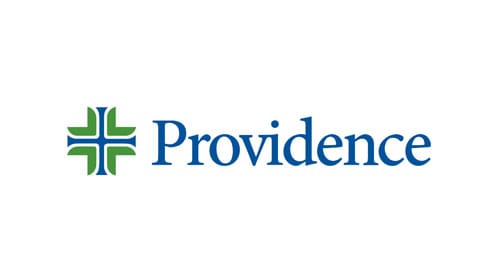What to know about traumatic brain injury: Bobby’s story
[3 min read]
In this article:
-
Bobby Clark was a typical high school senior until his life changed during a football game when he experienced a traumatic brain injury.
-
After emergency treatment, Bobby later came to Providence St. Luke’s Rehabilitation Medical Center for recovery, including physical, occupational and speech therapy.
-
Although traumatic brain injuries can affect people in different ways, they often are preventable. Protecting your brain is key.
What to know about traumatic brain injury: Bobby’s story
Meet Bobby Clark. Bobby was a typical high school senior, who enjoyed socializing with friends, riding his motorcycle, hunting and playing sports like football. But everything changed during the homecoming game.
The hits that resulted in traumatic brain injury
“It was into the second quarter when he came to the sideline and told Coach, ‘I don’t feel good,’” Bobby’s mom, Julie, remembers. “Another coach told him to get back in there – he didn’t know what was going on. So, Bobby rejoined the game. He got hit again. When he came back to the sideline, he collapsed. Stood back up. Collapsed. Stood up. He did that three times before he finally went down.”
Bobby played football his senior year at Priest River Lamanna High School.
Bobby was rushed to Newport Hospital, where he was then flown by helicopter to Providence Sacred Heart Medical Center in Spokane, Wash. for emergency surgery. It was confirmed that he had sustained a concussion, followed by a second traumatic brain injury (called second impact syndrome).
He stayed at Providence Sacred Heart Medical Center in a coma for 19 days. Later, he moved to Providence St. Luke’s Rehabilitation Medical Center, the region’s largest freestanding rehabilitation medical center.
“After a person has had a traumatic brain injury, and they’ve gone to the emergency room and been to the intensive care unit, they then come here to Providence St. Luke’s Rehabilitation Medical Center where we engage in multidisciplinary therapy,” explains Frank Jackson, D.O., medical director of the Providence Brain Injury Program. “That includes physical therapy, occupational therapy and speech therapy, with a real goal of trying to get people back to their regular activities of daily living and back to their home environment and things they enjoy.”
What is traumatic brain injury
A traumatic brain injury, or TBI, is caused by an external force being applied to the brain and causing it not to work correctly. The most common cause of TBIs is falls, followed by motor vehicle accidents. In Bobby’s case, multiple hits during a football game led to a TBI.
The symptoms of TBIs vary from person to person. They can affect people both mentally and physically.
“After a brain injury, it’s kind of hard to remember what has happened to you,” says Bobby. “Why life is not the same as it was.”
Some TBIs can affect people for the rest of their lives. Long-term symptoms might include headaches, fatigue, and issues with attention or balance. Recovery is a process. And it doesn’t always mean getting back 100% to where someone was before the TBI. At Providence, we have a lot of resources and opportunities to help patients move forward with a life that’s meaningful to them.
“We do a huge service when we give people accurate, but hopeful, information,” says Alicia Hegie, Psy.D., clinical neuropsychologist at Providence. “The ‘whys’ that drove a person before can still be part of their life, even if the ‘hows’ are different.”
Today, Bobby lives with his parents and loves spending time in their garden. He makes friends with anyone he meets. There are some struggles, like staying focused, which make having a full-time job hard. But despite the changes, his mom says, “he’s still very Bobby.”
Bobby and his mom have both seen a lot of changes since Bobby's TBI.
Lessons from Bobby’s TBI story
The good news about TBIs is that they’re often preventable.
“The key takeaway from Bobby’s story is the importance of not returning to play if you’ve already had a concussion,” says Dr. Jackson. “If you want to get back out there and play for the long run, taking care of your brain is one of the most important things you can do.”
If you play football, that also means wearing good fitting helmets. And reducing contact drills during practice to help reduce brain injuries.
“Very often, brain injury isn’t anybody’s fault,” adds Dr. Hegie. “But knowing what to watch for, knowing signs and symptoms, knowing when to stop doing something, are all ways people can decrease their risk of having a significant injury.”
And if you’ve had a TBI, Bobby says, “Take it day by day, folks. There’s a light at the end of the tunnel. Just keep trucking. Don’t take anything for granted and remember to love and respect your friends and family.”
--
Contributing Caregivers
Frank Jackson, D.O., is the medical director of the Providence Brain Injury Program at Providence St. Luke’s Rehabilitation Medical Center in Spokane, Wash.
Alicia Hegie, Psy.D., is a neuropsychologist at Providence in Spokane, Wash.
Find a doctor
If you need to find a doctor, you can use our provider directory. Our health care providers support a range of needs – from primary care to neurology and more.
Download the Providence App
We’re with you, wherever you are. Make Providence’s app your personalized connection to your health. Schedule appointments, conduct virtual visits, message your doctor, view your health records and more. Learn more and download the app.
Related resources
Traumatic brain injury patient grateful for care he received at Providence
Protect yourself from injury when playing sports
Sports training: How to train for a better season
Worried about your young athlete and concussions? Advice from a boxers and a doctor.
This information is not intended as a substitute for professional medical care. Always follow your health care professional’s instructions.





